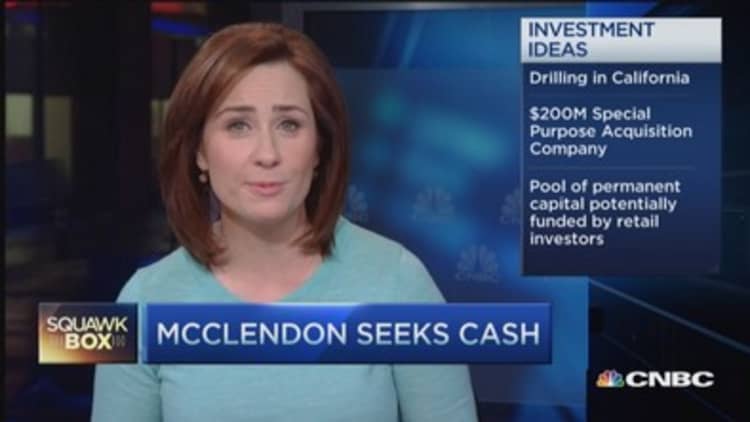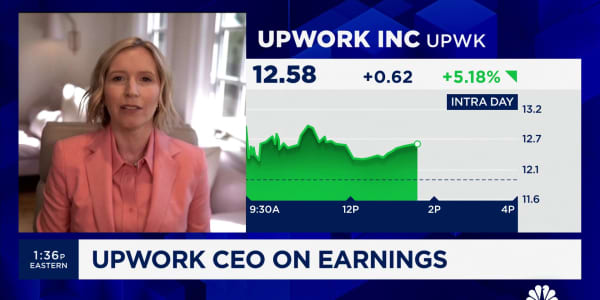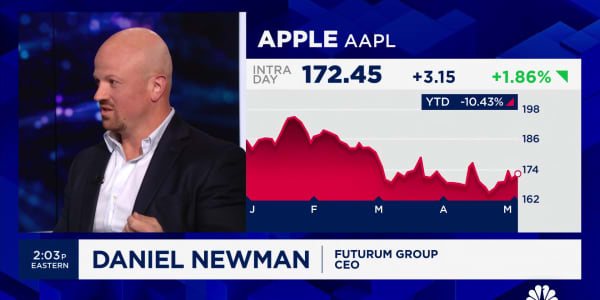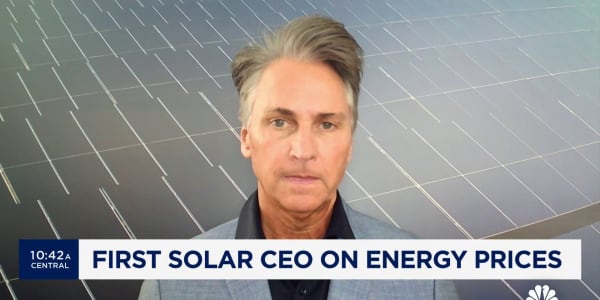Despite an embarrassing lawsuit accusing him of stealing trade secrets, energy guru Aubrey McClendon is raising additional cash for new oil and gas exploits.
This time he's using a specialized, $200 million investment vehicle that is set to go public soon, said people familiar with the matter.
Avondale Acquisition, a special-purpose acquisition company, or SPAC, is set to undertake an initial public offering soon, with McClendon as the company's chairman and founder, these people said. Avondale describes itself in Securities and Exchange Commission filings as a "newly organized blank check company" that will focus on potential mergers or other deals with existing businesses in the onshore U.S. oil and gas sector.
Avondale plans to sell the public 20 million "units"—in this case, bundles of stock and a portion of another type of security for $10 apiece—the filings said. The company will leverage the experience of McClendon's current drilling holding company, the privately held American Energy Partners, to select its investments.
McClendon was not available for comment on Avondale's expected debut, but the IPO has been in the works for at least a few months, said the people familiar with the matter.

Avondale's effort hit a snag in February, when the large drilling company McClendon co-founded in 1989, Chesapeake Energy, filed suit against him, his current energy holding company AEP and several related parties. That suit, which was submitted to an Oklahoma court, accused McClendon of stealing proprietary information about potential drill sites from Chesapeake during his waning days as CEO, early in 2013.
Read MoreChesapeake settles battle, but McClendon war looms
McClendon has denied the charges, saying he was entitled to a wide swath of drilling information as a result of his continuing investments in 16,000 Chesapeake wells.
But the lawsuit created enough angst in the marketplace, say people who were involved at the time, that Citigroup, which had originally been planning to underwrite the Avondale SPAC offering, pulled out of the deal afterward. (And, leery of the litigation's impact on potential financing efforts of its own, American Energy-Utica, one of the business units that had been sued alongside McClendon and American Energy Partners, settled its portion of the dispute with Chesapeake on April 14.)
Still, McClendon has pressed forward with the plans for the blank-check company, eventually filing an Avondale prospectus with the SEC through two smaller underwriting firms, Maxim Group and Ladenburg Thalmann, said those people. And recently, Deutsche Bank signed on to handle the deal, said the people now familiar with the matter. Deutsche's role in the Avondale offering will be announced imminently, one of those people added.
McClendon's planned offering marks yet another bet on the investor community's thirst for energy deals at a time when some investment bankers estimate that $100 billion has flooded into the space.
A steep drop in the price of both crude oil and natural gas since last spring has squeezed many drillers and energy infrastructure companies, creating a need for fresh access to capital. Numerous private equity firms, hedge funds and other investors are stepping into the breach.
Read More7 indebted oil stocks made for energy risk-takers
Indeed, with many energy company chiefs taking the view that U.S. oil and gas prices will remain relatively low for at least another year or two, now may prove a compelling time to make investments in companies or assets on the cheap.
Some privately held energy companies "have noticed there's plenty of money chasing them right now," Robin Miles, a partner at Bracewell & Giuliani who works with energy companies on financing deals, said in a recent interview. "And the private equity funds and hedge funds have a lot of dry powder to do that. How long that'll last, who knows."






